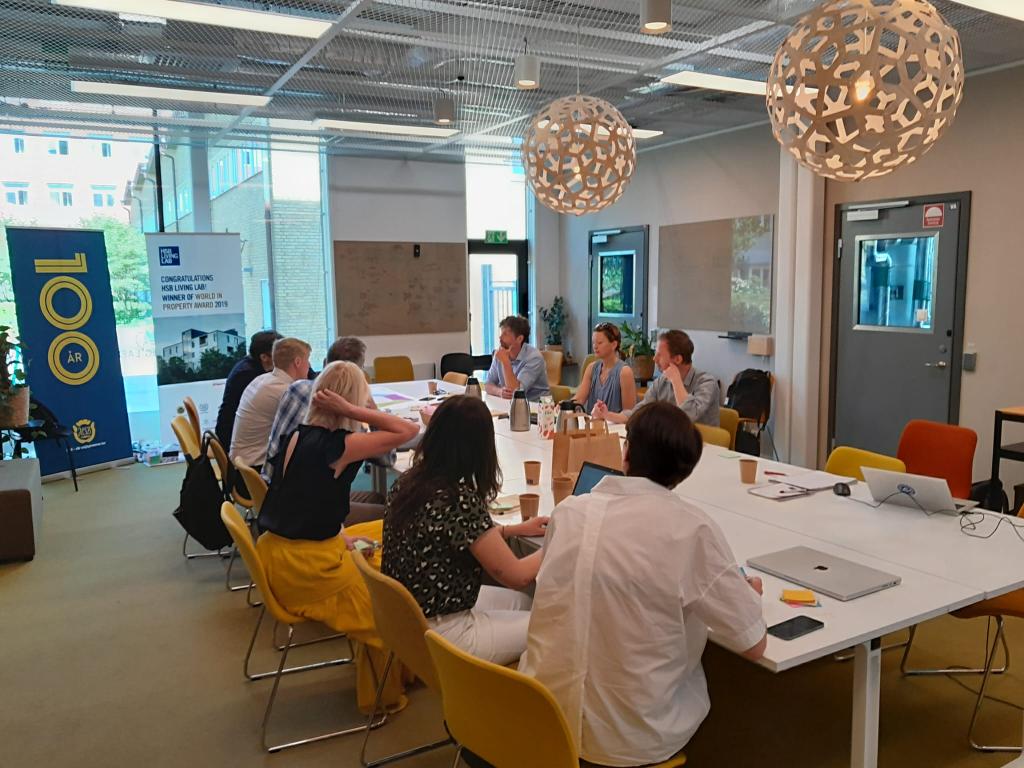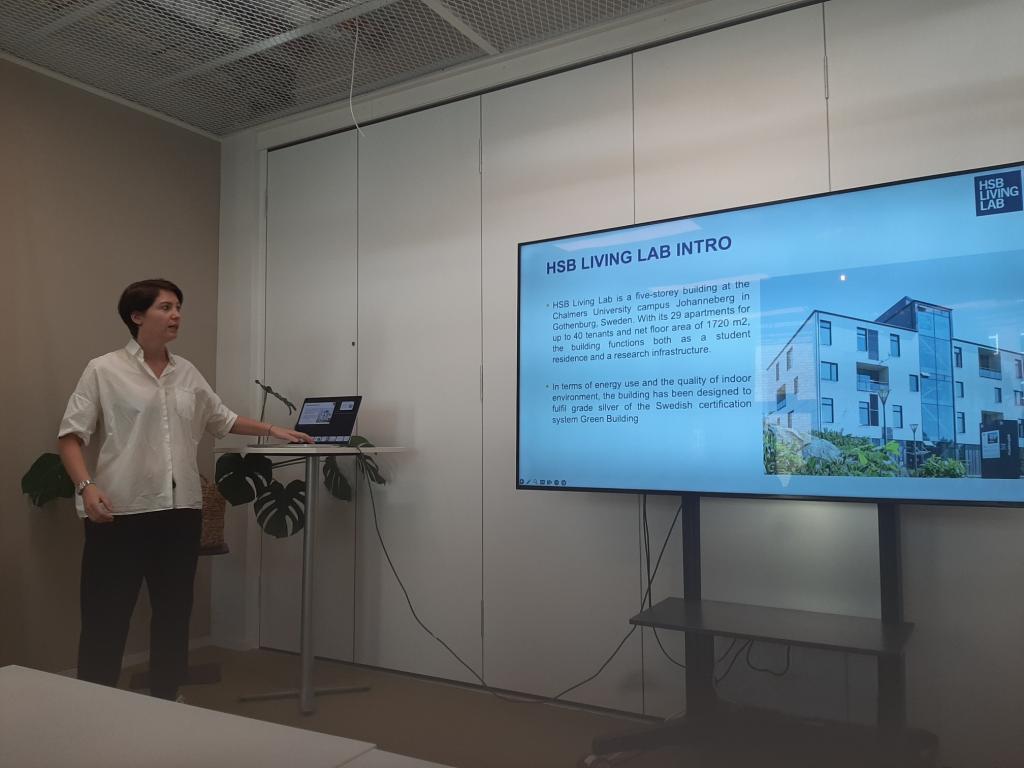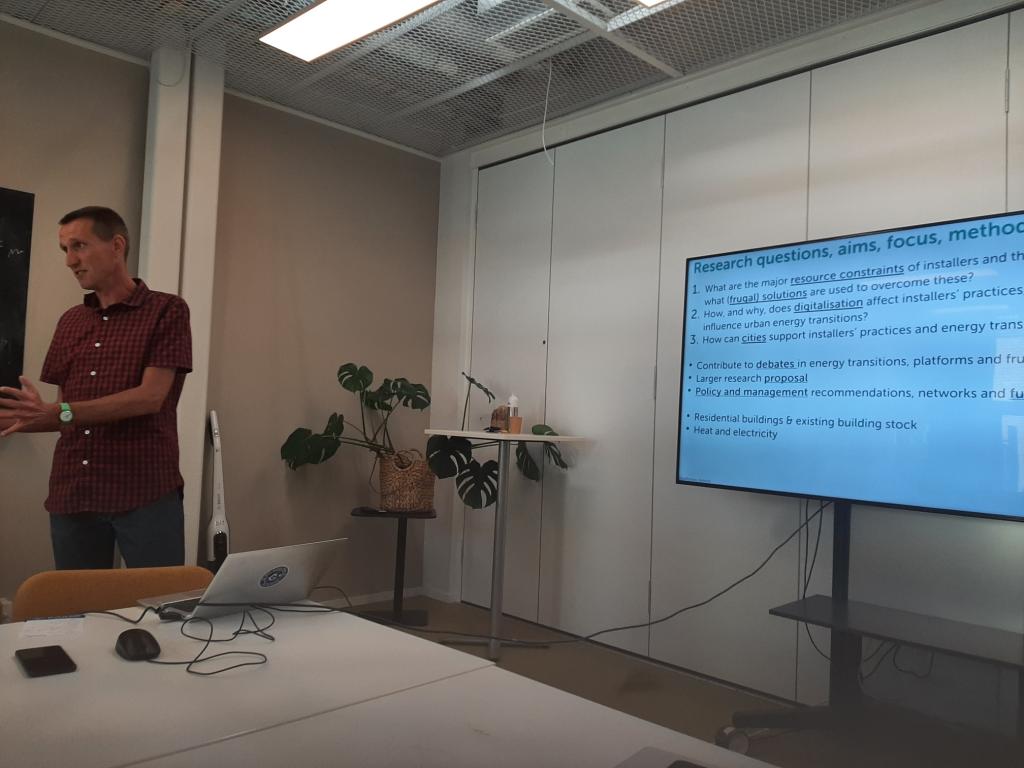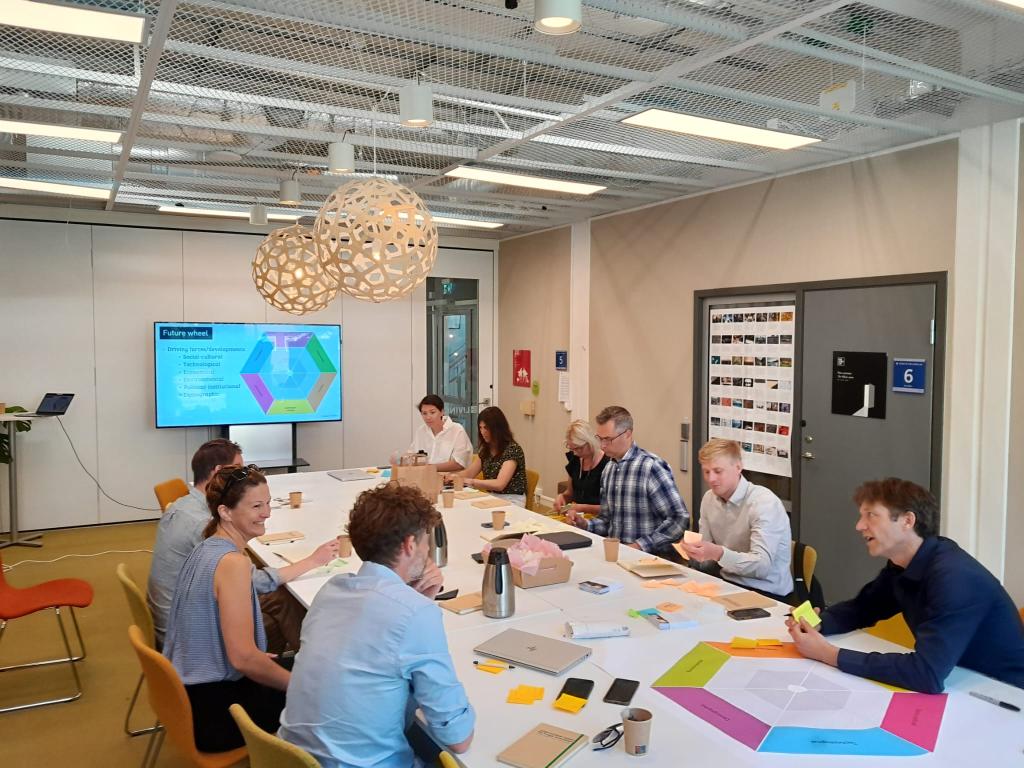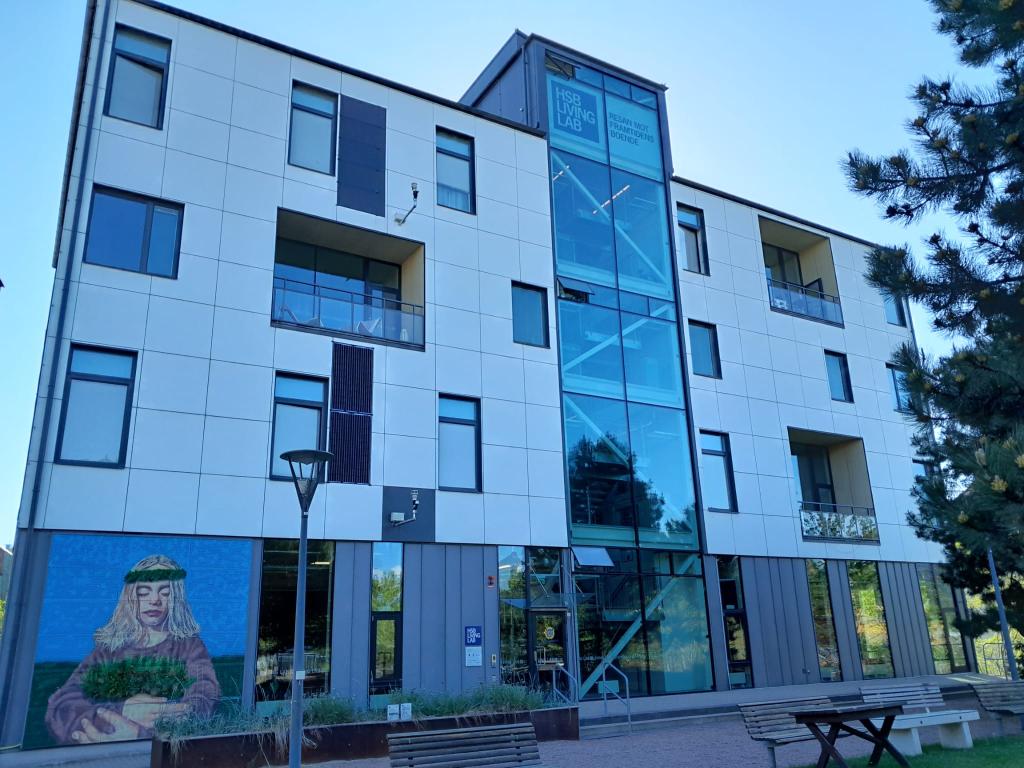The project "The Installer in the Post-Industrial City" sheds light on how digitalization and frugality influence installers' practices through a comparative study of professionals in Gothenburg and Rotterdam. By analyzing urban policies, facilities, and infrastructures, the project aims to offer future scenarios and recommendations on how cities and industry associations can support energy transitions and installers' businesses.
Through in-depth interviews and workshops, the research uncovers current practices, challenges faced by installer firms, and frictions between stakeholders. It also co-creatively identifies needs, concerns, opportunities, and challenges, informing debates and driving innovation in digitalization and energy transitions.
Participants in the interviews and workshops included representatives from installer firms, industry associations, manufacturers and wholesalers, digital technology providers, housing corporations, energy utility providers, municipalities, higher-level governments, community organizations, and more.
Rotterdam, The Netherlands
On April 17th, Dr. Erwin van Tuijl & Dr. Emiel Rijshouwer conducted a first workshop with installers and other key actors in energy transitions in the Netherlands, at the Beroepentuin in Rotterdam. The morning was dedicated to exploring various perspectives on the energy transition in existing residential buildings together with representatives from Breman, Vereniging Warmtepompen, IW-Zuid Holland, HR Campus Heijplaat, De Beroepentuin, TU Delft_Green Village, InSmart, Cooperatie Vreewijk, Bewonersvereniging Vreewijk and students from the Erasmus University.
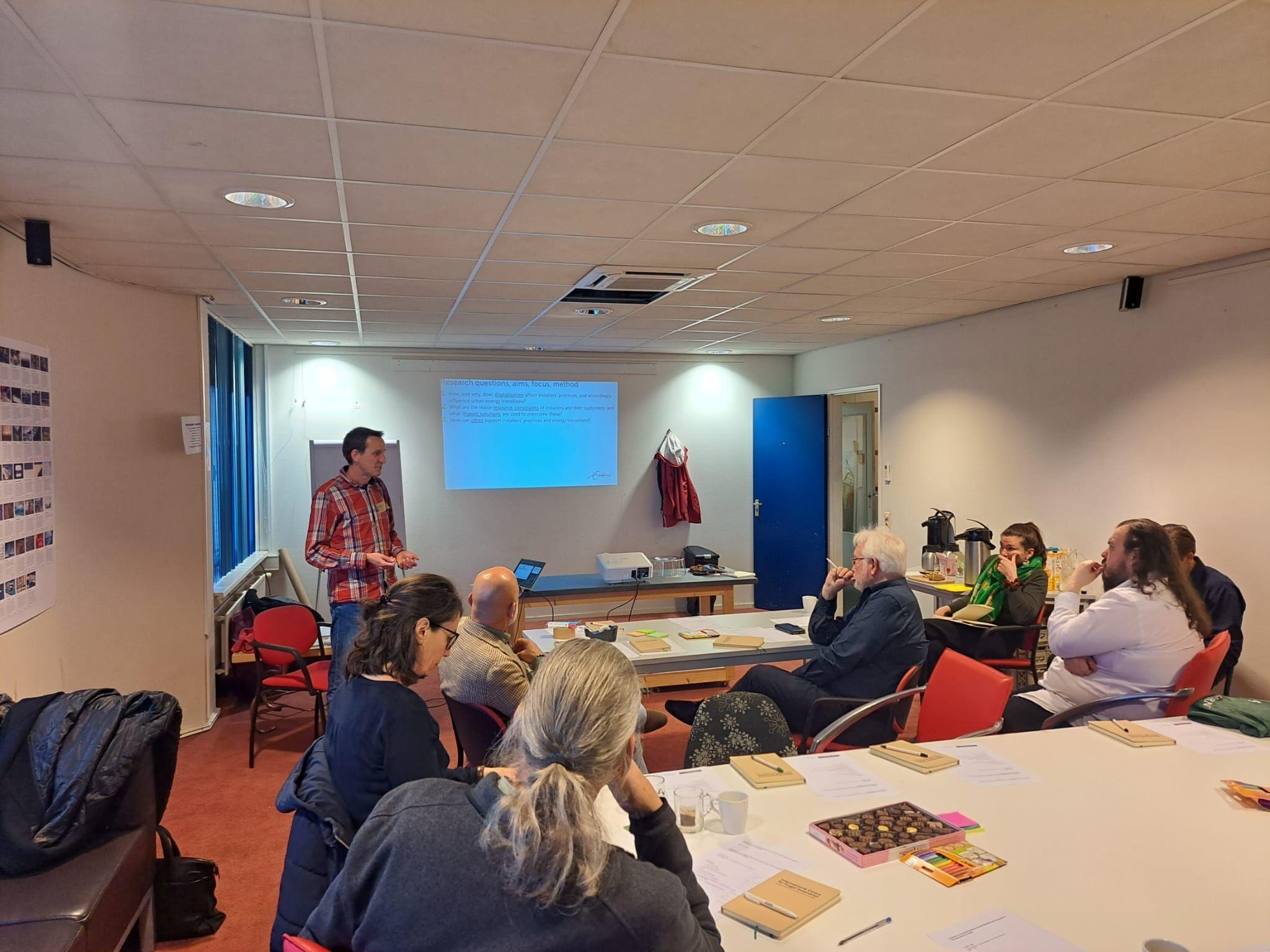
The workshop began with a warm welcome from Seyit Yeyden, one of the founders of De Beroepentuin. De Beroepentuin specializes in training energy and heating installers, with a unique focus on helping vulnerable groups such as former prisoners, migrants, the long-term unemployed, youths with social issues, and women, integrate into the labor market. Leveraging strong networks with installer firms, vocational training schools, and government agencies, De Beroepentuin offers an accessible training program tailored to the specific needs of participants, complete with a job guarantee. This initiative not only promotes social inclusion but also addresses the critical shortage of installers in the energy sector.
This was followed by Dr. Erwin van Tuijl who presented his initial findings from extensive interviews, offering valuable preliminary insights into the role and challenges of installers in energy transitions. He showed how the practices of installers are changing, and stressed the need for digitalisation as well as clear limitations on digitalisation for installers.
Throughout the workshop, led by Emiel Rijshouwer from Design & Publics, participants exchanged expertise and perspectives, enhancing our collective grasp of the complex challenges in urban energy transitions. The discussions, characterized by humility and a genuine spirit of collaboration, ranged from identifying trends to exploring various scenarios.
Key topics included the evolving role and limitations of digital technologies, the intricacies of central versus decentralized energy systems, and broader societal aspirations for inclusive prosperity.
Gothenburg, Sweden
Following the success of the first workshop in Rotterdam, Dr. Erwin van Tuijl & Dr. Emiel Rijshouwer conducted a similar event in Gothenburg, aligning the comparative nature of this research. The event featured a diverse range of participants that are interacting with installer firms, including representatives from Bengt Dahlgren, Chalmers Industriteknik, Chalmers University of Technology, Göteborg Energi, HSB Living Lab, LumenRadio and Powerpipe.
The meeting was held in a very inspiring location: The HSB Living Lab on the campus of Chalmers University. Featuring 29 apartments that can accommodate up to 40 tenants and a net floor area of 1720 square meters, the building serves both as a residence and a research facility. The flats house general students, HSB-members and guest researchers. A Living Lab is an open innovation environment situated in real-world contexts, which in this case Is meant to prototype and test innovations regarding sustainable building and living with people who actually live in and use the building. Up until now, more than 200 projects have been completed that include a variety of themes, including water, energy systems, smart homes, and resource management. In line with this research project, this venue was a perfect place to hold the workshop as it also demonstrates and tests energy and heating innovations that will be installed by installers. One key example is a test of a system that recovers heat from wastewater after a taking warm shower.
The morning started with an inspiring and welcoming introduction on the lab by Dr. Elena Malakhatka, both lab-researcher and resident. Afterwards, Dr. Erwin van Tuijl took the stage and presented the results from the case study of installers in Rotterdam. He stressed that installers are often overlooked but have a crucial role in shaping energy transitions as badly installed heating and energy systems will reduce energy efficiency. Moreover, he showed examples of how installers can reduce energy injustice. At the same time, there is a huge shortage of installers and various political, economic and technological dynamics transform the work practices of installers, and accordingly, slow down energy transitions.
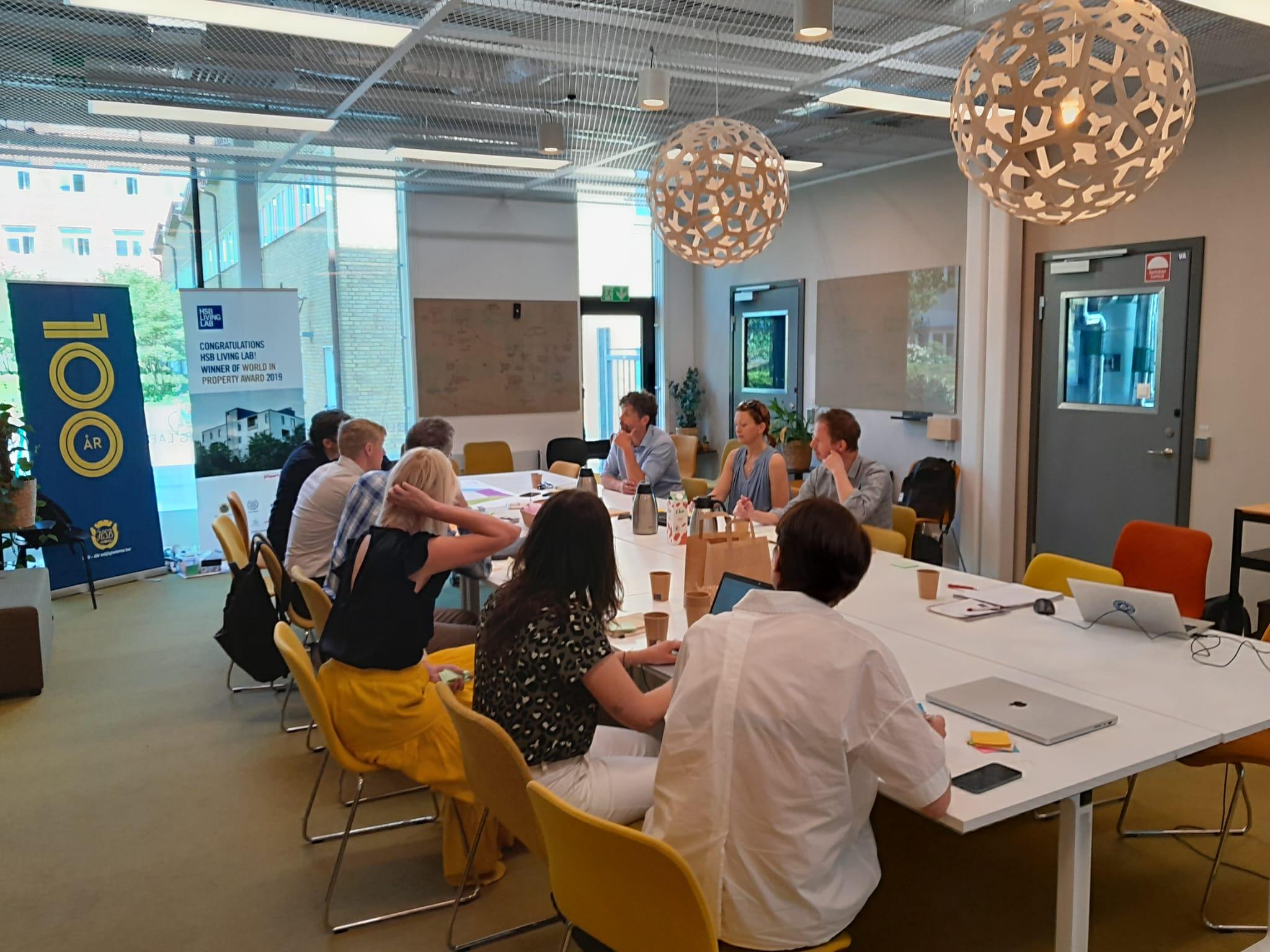
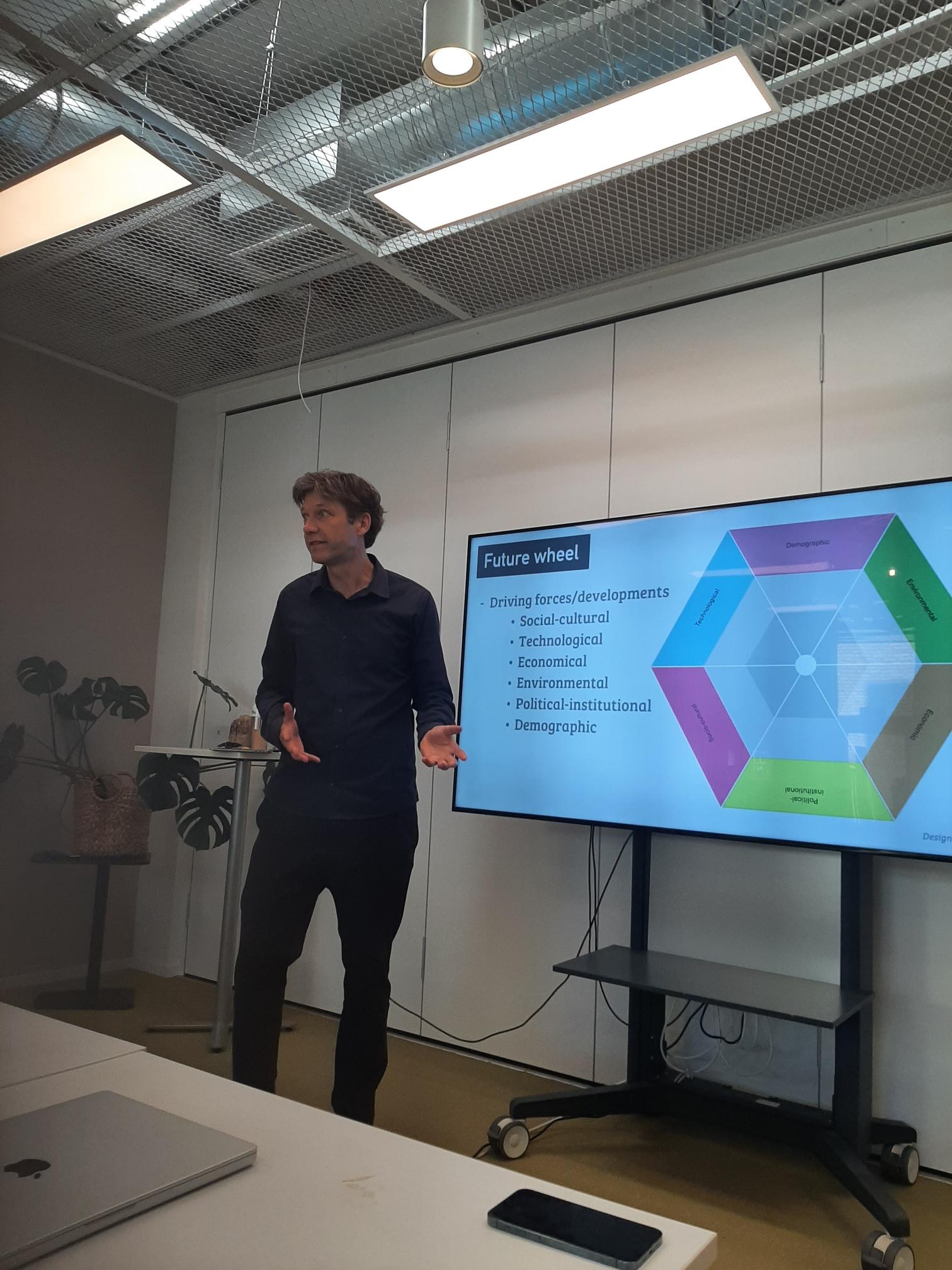
Next, Dr. Emiel Rijsenhouwer presented the “Future wheel” as a tool for scenario building. It helped the participants to brainstorm about different developments that might occur and which could potentially have a big impact on energy transitions in general and on installers and actors working with installers in particular. Based on the ‘harvest’ of this session Emiel will build future scenario’s.
Both contributions of Erwin and Emiel were followed by an interesting discussion among the participants, in which different subjects within the role on the installer in the energy transition were addressed. Some examples:
- The need for accessible and affordable training programs for installers, potentially funded by the government. The importance of lifelong learning to keep up with technological advancements.
- Exploration of using digital tools and remote support to improve efficiency and reduce the need for on-site visits by installers.
- How to safeguard an affordable and inclusive energy supply during energy transitions.
As we reflect on these meaningful gatherings, we would like to extend our gratitude to De Beroepentuin and HSB Living Lab for hosting us and to all participants for their valuable contributions. With a lot of inspiration and motivation, Dr. Erwin van Tuijl will follow this interesting research with conducting more interviews and diving even deeper in the fascinating topic of installers in the post-industrial city. Stay tuned for more updates.
